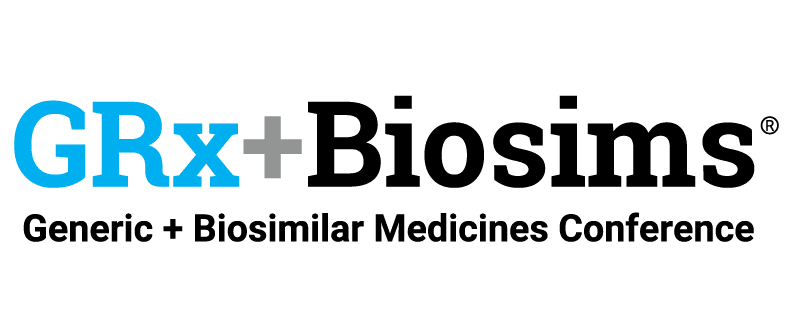Biosimilars are critical to the discussion around health care and its rising costs, as they have the potential to save more than $54 billion over the next 10 years and give 1.2 million patients access to needed medicines in the United States. To help increase understanding and awareness around these lifesaving therapies, the International Generics and Biosimilar Medicines Association (IGBA) has partnered with its biosimilar association members worldwide to launch Global Biosimilars Week, November 16-20, 2020.
The first biosimilar was approved in the United States in 2015, thanks to the enactment of the Biologics Price Competition and Innovation Act in 2010 (BPCIA). Currently 28 biosimilars have been approved by the FDA, providing patients with lower-cost, life-changing medicines, which treat cancer, rheumatoid arthritis, Crohn’s and more.
Jeni Doerr, 35, from Newhall, California, has benefitted from a biosimilar therapy. After two years of suffering from stomach issues that required multiple trips to the emergency room, Jeni was diagnosed with pancolitis and placed on a few different name brand biologic medications. But she was not finding relief. Her health care provider eventually prescribed a biosimilar for Jeni and after two days she started to feel normal again. According to Jeni, “Biosimilars truly gave me my life back!”
Like Jeni, many patients and even health care providers are not aware of the availability of biosimilars. Education is essential to the uptake of biosimilars as patients need access to viable treatment options. Stakeholders, including physicians and payers, need to understand what biosimilar options are available and be able to relay this information to patients. Global Biosimilars Week looks to advance this knowledge around a few notable pillars:
Biosimilars are safe.
Biosimilars undergo rigorous FDA testing, review and safety monitoring. The biosimilars development process is complex and companies that manufacture biosimilars are committed to providing safe, effective products to patients. Prior to FDA approval, studies are performed to show that biosimilars have no clinically meaningful differences in safety, purity or potency (safety and effectiveness) compared to the reference product.
Biosimilars increase access to treatment options.
Biosimilars are important because they provide competition in the market and expand patient access to critical medicines, much like the advent of generic medications more than 35 years ago. Experts estimate that biosimilars could be priced 10 to 35% less than brand-name biologics. This means they can lower costs across the whole medical system and ensure that patients don’t have to choose between essential needs and medication.
Biosimilars are effective.
Biosimilars are developed with the same types of natural sources as the brand medication to which they are compared; they are administered the same way, have the same strength and dosage, and have the same potential side effects. A biosimilar provides the same treatment benefits as the original biologic.
***
Related Resources
[FDA Infographic] Biosimilar Basics
[FDA Infographic] What is a Biosimilar?
[Video] Jeni Got Her Life Back, Thanks to a Biosimilar
***
Regulatory approvals of biosimilars in the United States are not always followed immediately by market launches, primarily due to patent litigation unique to the American system. Of the 28 approved, only 18 are currently available on the market.
There are fundamental differences in both the regulatory processes and the market dynamics of the United States and the European Union that account for much of the discrepancy in the uptake of biosimilars. Chief among these is the difference in the patent landscape, with some European Union patents ending earlier and some originator companies generating more patent barriers in the United States.
Patients, taxpayers and the overall health care system are bearing the costs of these patent schemes and delayed access to biosimilars. In an analysis, the Association for Accessible Medicines’ (AAM) Biosimilars Council found delayed entry of biosimilars due to patenting has cost the U.S. health care system an astounding $7.6 billion in lost savings since 2015.
Almost across the board, the EU has approved more biosimilars for each reference biologic than the United States. An analysis of the largest U.S. commercial health plans’ coverage decisions related to biosimilars found only 14 percent of decisions gave preferred coverage to the biosimilar. While Europe is frequently credited with far higher biosimilar uptake – even 100% in some cases – Europe’s dominance in this area is often overstated and varies from country to country.
The events of 2020 have made it clear that health care solutions are needed that improve patient access to medicines. This must include access to biosimilars. Fulfillment of the promise of biosimilars can happen if we educate key stakeholders: health care providers, policymakers and patients.
Join the Biosimilars Council along with 17 other IGBA associations in building awareness. Follow the hashtag #GlobalBiosimilarsWeek and use the social toolkit to join the conversation with daily themes throughout the week. Visit globalbiosimilarsweek.org for more information.
About the Biosimilars Council
The Biosimilars Council, a division of the Association for Accessible Medicines (AAM), works to ensure a positive environment for patient access to biosimilar medicines. The Biosimilars Council is a leading source for information about the safety and efficacy of more affordable alternatives to costly brand biologic medicines. Areas of focus include public and health expert education, strategic partnerships, government affairs, legal affairs and regulatory policy. More information is available on our about page.
About AAM
AAM is driven by the belief that access to safe, quality, effective medicine has a tremendous impact on a person’s life and the world around them. Generic and biosimilar medicines improve people’s lives, improving society and the economy in turn. AAM represents the manufacturers and distributors of finished generic pharmaceuticals and biosimilars, manufacturers and distributors of bulk pharmaceutical chemicals, and suppliers of other goods and services to the generic industry. Generic pharmaceuticals are 90 percent of prescriptions dispensed in the U.S. but only 20 percent of total drug spending.
